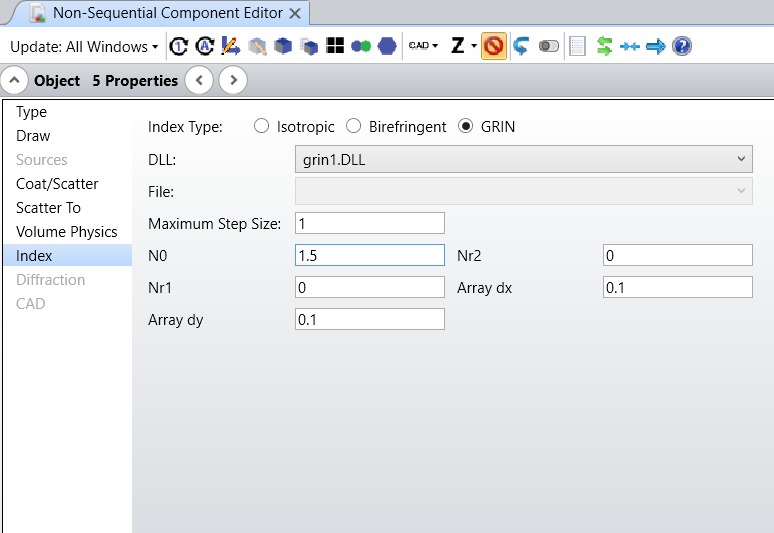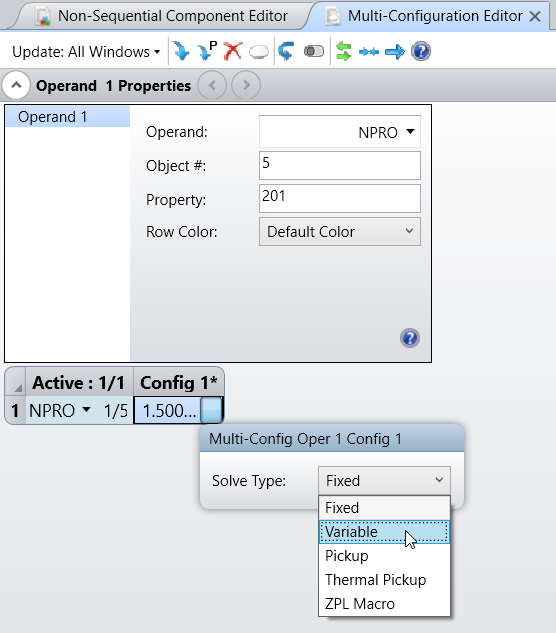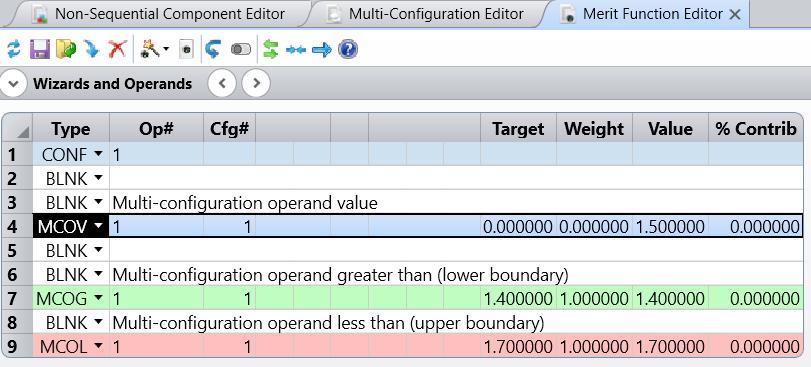There is no direct option to flag the index of a model glass as variable in the non-sequential mode.
Yet, if you need to use this index during optimization, there is an alternative.
You can define the material as gradient index material (GRIN) in the “Index” tab of the object properties:

And then use the Multi-Configuration Editor to make this parameter a variable.
The index of a GRIN material is then available with the NPRO operand, parameter #201 :

And you can then add it as variable.
Quick notes:
- This technique of using the Multi Configuration Editor to add parameters that are not otherwise available can be applied for many other use-cases.
- The description of all Multi-Configuration operands, and their parameters, is available in the Help files of OpticStudio





